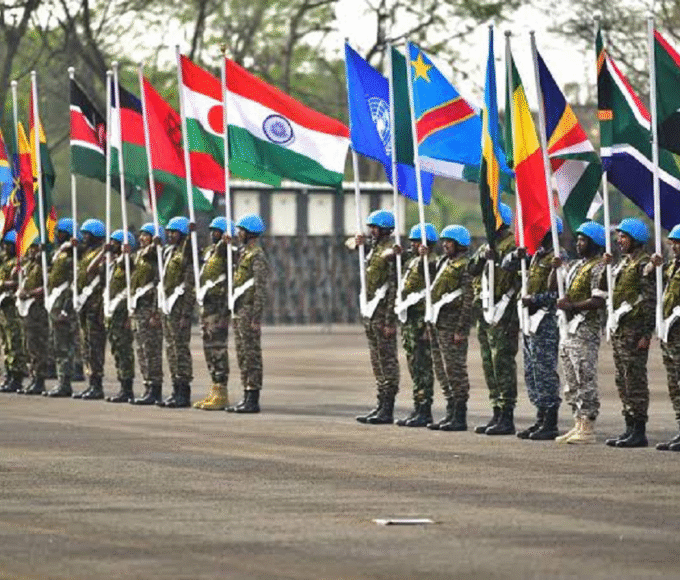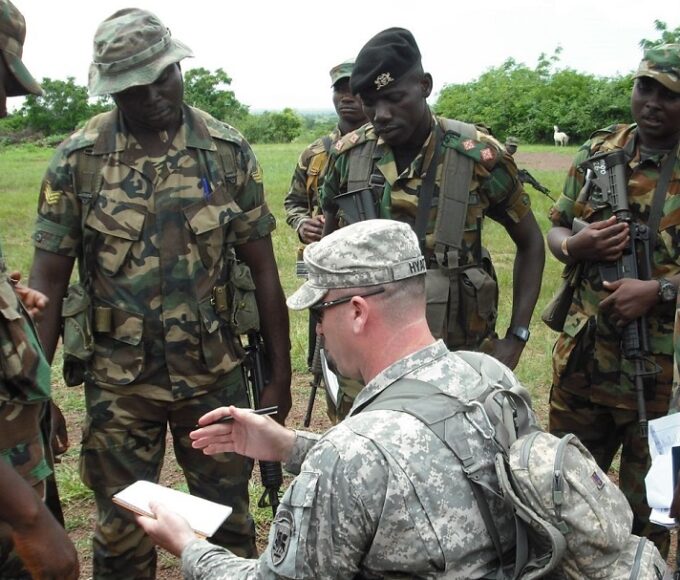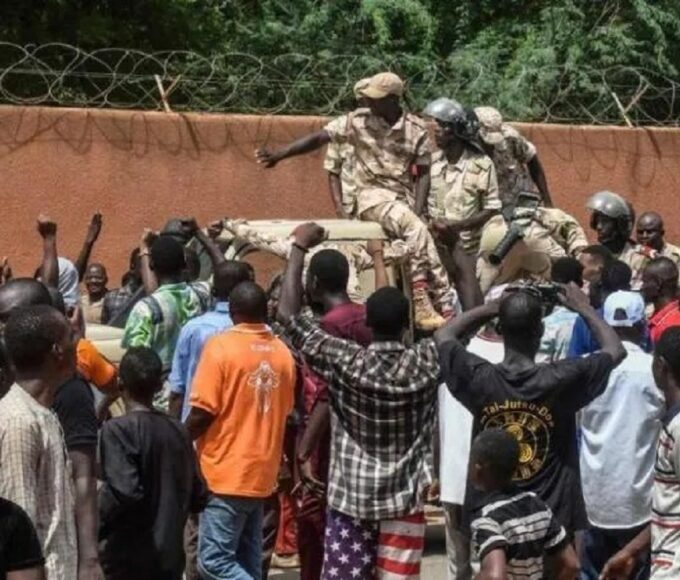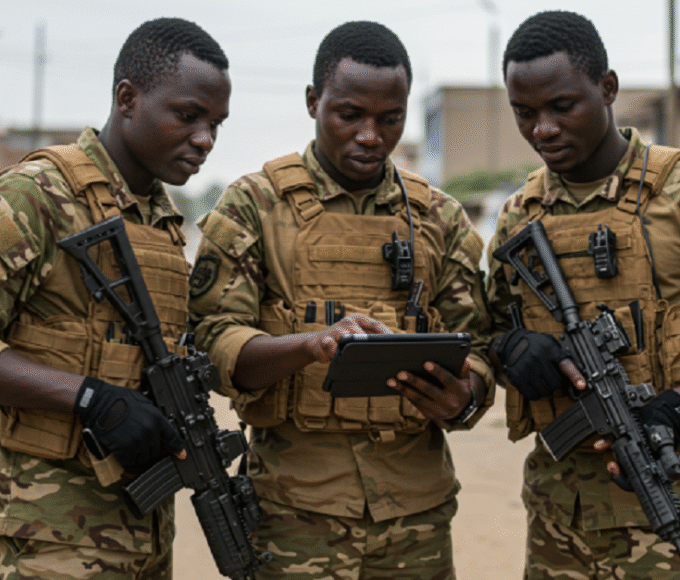Africa’s Forgotten Warriors: Revisiting Indigenous Military Traditions
Today, some African states are turning back to their martial past—not only for cultural pride but for strategic insight.

In the popular imagination of global military history, Africa is often depicted as a continent of tribal skirmishes and colonial conquest—passive in war, peripheral in strategy. But that view collapses under the weight of Africa’s own formidable martial past: centuries of sophisticated warfare systems, military diplomacy, and warrior societies whose legacies remain deeply woven into modern military structures, though often unacknowledged.
From the fearsome cavalry of the Sokoto Caliphate to the naval ingenuity of the Swahili city-states, Africa’s pre-colonial military systems were anything but primitive. Today, historians and defence scholars are reviving interest in these traditions—not merely as historical footnotes but as blueprints for understanding indigenous command culture, asymmetric strategy, and the enduring relationship between African militaries and society.
Strategic Empires, Not Scattered Tribes
The military systems of ancient Africa were as diverse as its geography. In West Africa, the Dahomey Kingdom fielded one of the earliest recorded all-female military units in the 18th century—later dubbed the “Dahomey Amazons” by French colonists. Armed with flintlocks and machetes, they trained from adolescence, served as elite guards, and conducted lethal counter-raids on rival kingdoms.
Further north, the Songhai Empire deployed a professional standing army of infantry and cavalry that controlled trade routes across the Sahara and maintained garrisons from Gao to Timbuktu. In Ethiopia, the Solomonic dynasty harnessed Christian crusading rhetoric and feudal levies to fight Muslim sultanates and later resist Italian colonisation—most famously at the Battle of Adwa in 1896, where Ethiopian forces decisively defeated a modern European army.
Military hierarchy, logistics, training rituals, and fortification systems—hallmarks of organised warfare—were all present long before the colonial era.
Tactics Born of Terrain
One defining trait of African military traditions was the innovative use of local geography. The Zulu “bull horn” formation, perfected under King Shaka in the early 19th century, surrounded enemies using encirclement tactics—an early example of operational manoeuvre warfare. Zulu warriors, equipped with the short stabbing spear (iklwa), moved swiftly and silently, favouring close combat over projectile exchanges.
In the Sahel and savannah regions, cavalry units—mounted on imported Barb or Arabian horses—served as mobile strike forces. In the forested regions of Central Africa, stealth and ambush dominated, with small units relying on camouflage, terrain familiarity, and psychological warfare through drums, chants, and war masks.
These tactics are echoed in the guerrilla strategies later employed by liberation movements in the 20th century.
Ritual, Identity, and Command
Military power in precolonial Africa was not merely functional—it was deeply ceremonial and symbolic. Chiefs and kings often doubled as commanders-in-chief, merging political and military leadership. War drums, flags, and totems reinforced unit cohesion. Warriors underwent rites of passage that sanctified their roles in society, often elevating them to sacred status.
In places like Buganda (now Uganda), elite guards known as the “Royal Drummers” held quasi-priestly roles, protecting both palace and legacy. In Hausaland, emirate cavalry units were both religious enforcers and defenders of the caliphate, trained in Islamic martial codes and local customs.
The fusion of spiritual legitimacy with martial duty created durable loyalties—something many modern African armies, struggling with civil-military relations, have yet to replicate.
Colonial Erasure and Transformation
With the arrival of European colonisers in the late 19th century, indigenous military systems were systematically dismantled or absorbed. British and French forces disarmed local armies, banned warrior cults, and recruited African men into new “askari” regiments under European command.
“The colonial military project was not just about conquest—it was about restructuring the very nature of African martial power,” says Dr. Khadija Mabaso, a military anthropologist at the University of Pretoria.
This transformation was double-edged. While it broke traditional command structures, it also seeded the professionalisation of African armies. Askari units from Nigeria, Kenya, Sudan, and Senegal gained combat experience in European wars, setting the stage for post-independence armies.
Yet, in doing so, African martial heritage was largely written out of history.
A Legacy Rekindled
Today, some African states are turning back to their martial past—not only for cultural pride but for strategic insight. Nigeria’s Army Heritage Centre now houses artefacts from the Nok era to Biafra. Rwanda’s military academy studies pre-colonial conflict resolution models alongside NATO doctrine. Ghana celebrates the legacy of the Asante Empire’s military systems in its officer commissioning ceremonies.
Meanwhile, think tanks such as the African Security Sector Network (ASSN) are calling for deeper integration of indigenous conflict resolution and command ethos into defence policy.
“Respect for elders, decentralised command, and warrior codes based on duty and sacrifice—these are African military values that still matter today,” says Brig. Gen. (rtd) T. Mutsvangwa of Zimbabwe.
Reclaiming Africa’s Military Memory
Africa’s precolonial warrior traditions were not relics—they were refined systems adapted to environment, politics, and identity. Understanding these legacies is not about nostalgia. It is about acknowledging that Africa did not learn warfare from Europe—it adapted it long before colonisation, and continues to adapt it today.
By revisiting the stories of forgotten generals, battlefield innovations, and community-based military service, African nations can recover not just their past—but also a vital part of their strategic future.
Recent Posts
Categories
- Air & Aerospace17
- Border Security15
- Civil Security6
- Civil Wars4
- Crisis5
- Cyber Security8
- Defense24
- Diplomacy19
- Entrepreneurship1
- Events5
- Global Security Watch6
- Industry8
- Land & Army9
- Leadership & Training5
- Military Aviation7
- Military History27
- Military Speeches1
- More1
- Naval & Maritime9
- Policies1
- Resources2
- Security12
- Special Forces2
- Systems And Technology9
- Tech6
- Uncategorized6
- UNSC1
- Veterans7
- Women in Defence9
Related Articles
INDIA’S GROWING MILITARY PARTNERSHIPS WITH AFRICA
India’s engagement with Africa is undergoing a quiet but powerful transformation. What...
ByKing Richard Igimoh, Group Editor ALOOctober 14, 2025EVOLVING HORIZONS: TRAINING THE AFRICAN SOLDIER IN A CHANGING LANDSCAPE
The training of African soldiers has undergone a profound transformation in recent...
ByKing Richard Igimoh, Group Editor ALOOctober 2, 2025COLD WAR AFRICA: PROXY WARS AND THEIR IMPACT
The Cold War in Africa, spanning from the late 1940s to the...
ByKing Richard Igimoh, Group Editor ALOSeptember 26, 2025AI AND AFRICA’S MILITARY INTELLIGENCE: PROMISE AND PERIL IN A TRANSFORMING SECURITY LANDSCAPE
Africa’s military landscape is entering a new chapter, shaped by the rapid...
ByKing Richard Igimoh, Group Editor ALOSeptember 22, 2025













